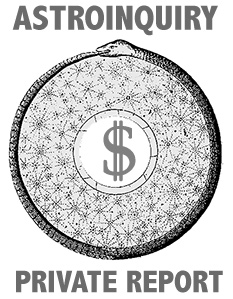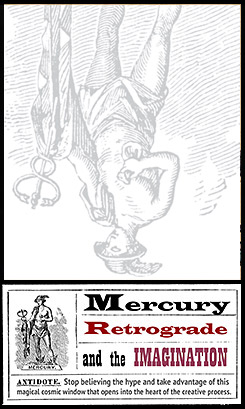Connect With Me In All Dimensions!

Calling all voyagers! Follow me on Facebook, Twitter, MixCloud and TinyLetter.

Bright Thoughts: The Mitch Horowitz Interview

In the opening to his new book One Simple Idea: How Positive Thinking Reshaped Modern Life, author Mitch Horowitz recounts his childhood fascination with inspirational wisdom.
For him it all began with a poem that hung on the wall in his big sister’s bedroom. A blacklight poster that included phrases like:
“Forget yesterday. I am where I am. Tell me friend, what can I do today, to be where I want to be tomorrow?â€
When Mitch’s father lost his job and financial conditions in the family took a downward arc, his curiosity about the possibilities of positive thinking grew, leading him to eventually study the writings of Emerson and Talmud. His hope was that his internal attitude and perspective of mind could make a difference.
Horowitz attributes aligning with uplifting thoughts as a remedy that didn’t so much as change his family’s fortunes –- which did gradually improve — but as a practice that helped him “navigate his life. And maybe something more.â€
And it’s that “something more†that Horowitz explores in detail in his meticulously researched book. Read more
New Cosmix: Summer 2014 Part 1
I’m prepping to leave for my annual meditation retreat in Hawai’i. The following mix is what I put together last week for the long flight. As usual the flow moves through several decades worth of material.
Tag this with ambient, electronic, nu-jazz, dance, dream pop, hindi mantras and finally strange attractor. Because, from segue to segue your guess becomes as good as mine to where it all goes.
Look for part 2 later next month. And yes, it will include some Bobbie Gentry!
Enjoy. And merry solstice shift.
Mercury Retrograde and the Imagination


The purpose of this post isn’t going to be about what you think it’s going to be about.
You read the word imagination in the title, but actually, I’m going to talk about the word in a different way.
And so this little exchange will be a good example of how the mind works when Mercury is retrograde. Or rather what we see about the nature of our habitual mind and the way it works. Which is usually predictable and reactive — thinking but not really understanding.
Mercury retrogrades can be a fortuitous time to foster understanding because the mental process of the mind is heightened, more engaged and possibly — with a little effort — more present. In fact, compared to its normal rhythm, the mind is liable to feel charged with Mercurial quicksilver.
So what I’m talking about here is this:
You read a word, it triggers an association within your mental data bank — but it’s the wrong association. The impulse travels along an old, worn groove, but it’s not the right groove. You end up where you didn’t expect to end up.
And this is why when clients talk to me about how to best align with Mercury retrograde I advise: “Pay attention, things won’t be what you think they are going to be.” Meaning, your old way of seeing everything in the same familiar way is unplugged through the retrograde phase. Read more
Pied Beauty by Gerard Manley Hopkins

Like Walt Whitman, Hopkins makes a fascinating play of language — where his word picks stack and accrue into an incantational pressure. A genius gesture, because after a spell you aren’t quite sure what you’re reading and translating, but you don’t care. It just feels good.
And so you read his poem again (and again).
And then, in the end, the lid of your head comes off and all the grandeur and the beauty and the space and the mystery comes tumbling in.
Try it!
Glory be to God for dappled things –
For skies of couple-colour as a brinded cow;
For rose-moles all in stipple upon trout that swim;
Fresh-firecoal chestnut-falls; finches’ wings;
Landscape plotted and pieced – fold, fallow, and plough;
And áll trádes, their gear and tackle and trim.
All things counter, original, spare, strange;
Whatever is fickle, freckled (who knows how?)
With swift, slow; sweet, sour; adazzle, dim;
He fathers-forth whose beauty is past change:
Praise him.
Painting: Monk by the Sea by David Friedrich




















